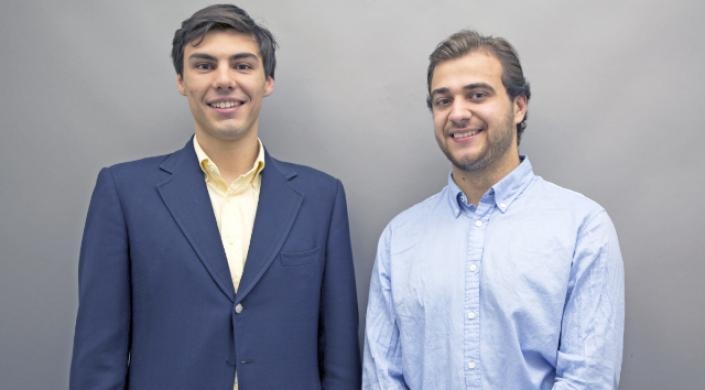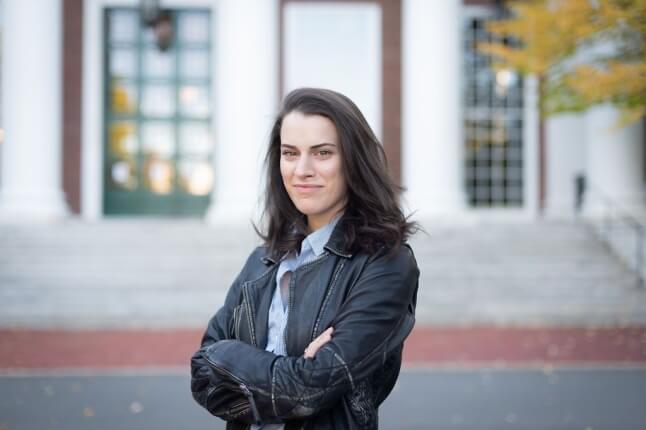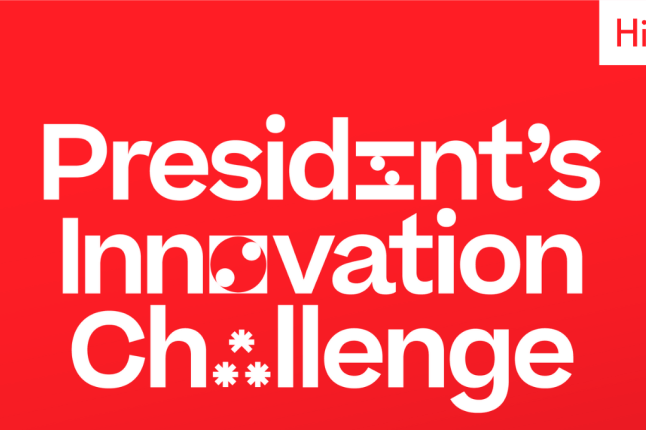News
Harvard freshmen Christopher Onesti (left) and Nicolas Weninger, an electrical engineering concentrator, recently launched Entyde, a startup that seeks to develop an easy-to-use, reliable, and reusable intubation verification sensor for EMT teams. (Photo by Adam Zewe/SEAS Communications.)
Around the dinner table one evening, Christopher Onesti’s physician father shared a story about an emergency patient who died due to a preventable mistake -- improper intubation. During a frenzied ambulance ride, the emergency medical technicians (EMTs) inadvertently placed the intubation tube into the patient’s esophagus instead of the trachea, pouring oxygen into the stomach rather than the lungs.
Onesti reached out to EMTs near his Westchester County, N.Y. home, and learned that most intubation verification sensors are disposable and cost at least $12 each, which can stretch the wafer-thin budgets of small, privately funded EMT units that perform hundreds of intubations each year.
“Because many EMT firms have limited funding and cannot afford these disposable sensors, technician often resort to evaluating a patient’s physical signs to see if he or she is breathing properly,” he said. “Many EMT personnel who conduct intubations are new to the experience, so using a sensor would definitely benefit them.”
So, from the day he walked onto the Harvard campus in September 2016, Onesti was set on launching a startup. He met like-minded freshman Nicolas Weninger, an electrical engineering concentrator, and the two began brainstorming viable startup ideas. They drew inspiration from their collaborative project in Introduction to Computer Science (CS 50), which ultimately led to the launch of Entyde, which they entered into the 10th annual i3 Innovation Challenge. The student startup competition is organized by the Technology and Entrepreneurship Center at the John A. Paulson School of Engineering and Applied Sciences.
Entyde seeks to develop an easy-to-use, reliable, and reusable intubation verification sensor, offering a more affordable option for small, underfunded EMT teams, Weninger said. The startup won the McKinley Commercial Grant Gold Medal in the i3 Innovation Challenge, which includes a $10,000 prize.
Their prize-winning idea is a sterilizable CO2 sensor device that connects to an intubation tube. The sensor, which detects the rate of change of CO2 being exhaled by the patient, sets off a binary indication light that glows green or red to indicate whether a patient is breathing properly, Weninger explained
“In an emergency situation, everything is happening so fast and there is a lot of confusion, so we don’t want our device do add a burden to EMS teams,” he said. “We want our sensor to be easy to integrate into their current workflow, so they could simply swap in our sensor and it immediately works.”
Ensuring the device is sterilizable is one of the biggest challenges the startup team faces. Their prototype is comprised of materials that won’t be damaged by repeated cleaning with alcohol wipes, and they are developing a pressure-based valve that will only open when oxygen is being pushed into the patient’s trachea. To ensure proper sterilization, exhaled air must be prevented from crossing back through the valve.
The co-founders will spend the summer fine-tuning the prototype to make the device as easy to use as possible and to meet FDA approval specifications. They will reach out to West Coast business contacts for advice on medical device startups as they solidify their business model. They also plan to work closely with Cambridge EMT units to develop a deeper understanding of intubation processes.
“We don’t know what the future will hold for Entyde, in terms of what the company will look like, but what has driven us from the start has been a desire to help people and create a positive impact,” Onesti said. “That vision will continue to be a driving force for us down the road.”
The vote of confidence from the i3 Innovation Challenge judges was a huge boost for the firm, Weninger added. For him, it is especially gratifying that two college freshmen can break into the medical device industry and develop a system that could save lives.
“Engineering in all its forms can be a really strong force for good in the world, and I think our startup and the work we have done is a really good indication of that,” he said.

The sterilizable CO2 sensor device being developed by the Entyde team could help small, underfunded EMT teams ensure proper intubation of patients.
Topics: Entrepreneurship
Cutting-edge science delivered direct to your inbox.
Join the Harvard SEAS mailing list.
Press Contact
Adam Zewe | 617-496-5878 | azewe@seas.harvard.edu



